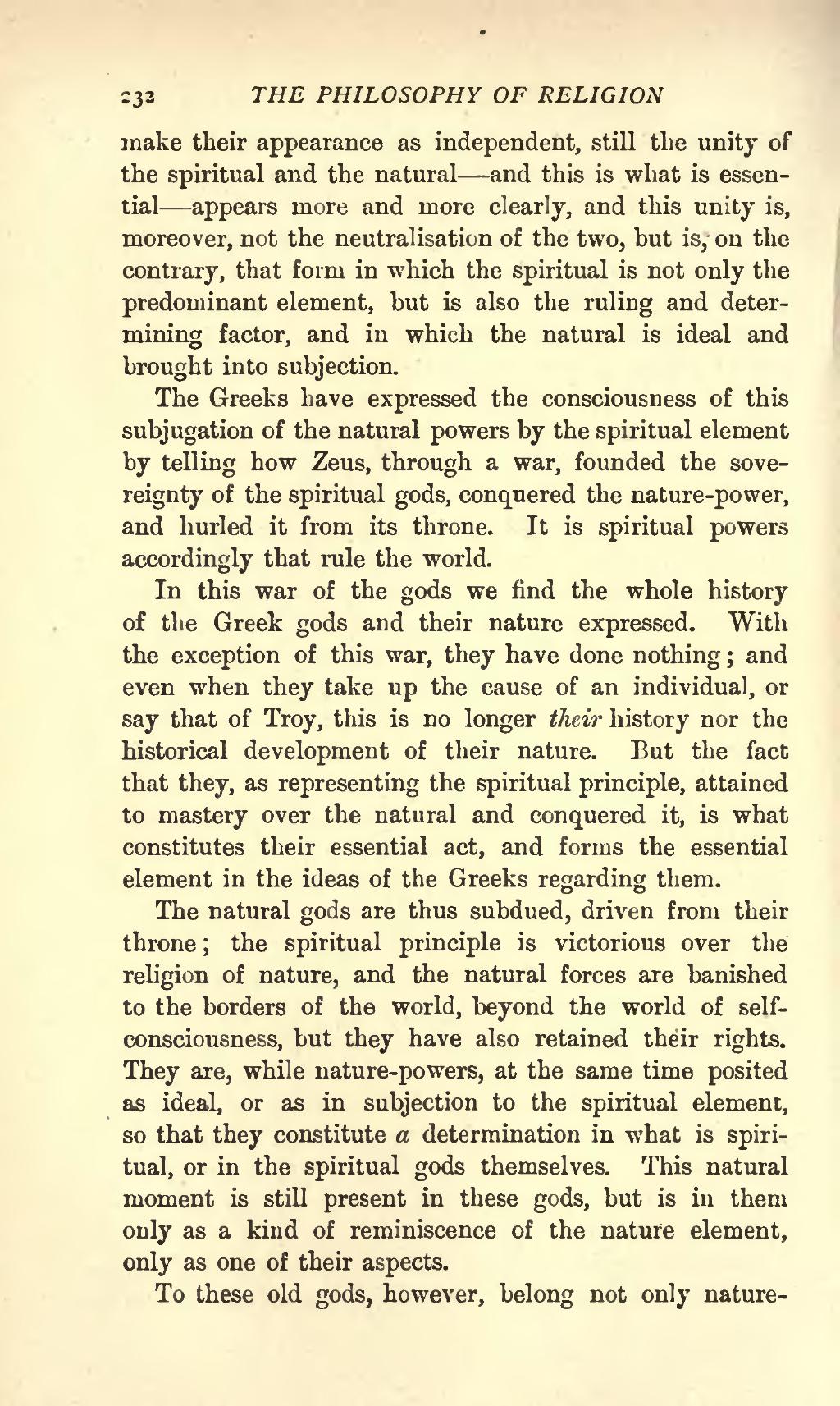make their appearance as independent, still the unity of the spiritual and the natural—and this is what is essential—appears more and more clearly, and this unity is, moreover, not the neutralisation of the two, but is, on the contrary, that form in which the spiritual is not only the predominant element, but is also the ruling and determining factor, and in which the natural is ideal and brought into subjection.
The Greeks have expressed the consciousness of this subjugation of the natural powers by the spiritual element by telling how Zeus, through a war, founded the sovereignty of the spiritual gods, conquered the nature-power, and hurled it from its throne. It is spiritual powers accordingly that rule the world.
In this war of the gods we find the whole history of the Greek gods and their nature expressed. With the exception of this war, they have done nothing; and even when they take up the cause of an individual, or say that of Troy, this is no longer their history nor the historical development of their nature. But the fact that they, as representing the spiritual principle, attained to mastery over the natural and conquered it, is what constitutes their essential act, and forms the essential element in the ideas of the Greeks regarding them.
The natural gods are thus subdued, driven from their throne; the spiritual principle is victorious over the religion of nature, and the natural forces are banished to the borders of the world, beyond the world of self-consciousness, but they have also retained their rights. They are, while nature-powers, at the same time posited as ideal, or as in subjection to the spiritual element, so that they constitute a determination in what is spiritual, or in the spiritual gods themselves. This natural moment is still present in these gods, but is in them only as a kind of reminiscence of the nature element, only as one of their aspects.
To these old gods, however, belong not only nature-
